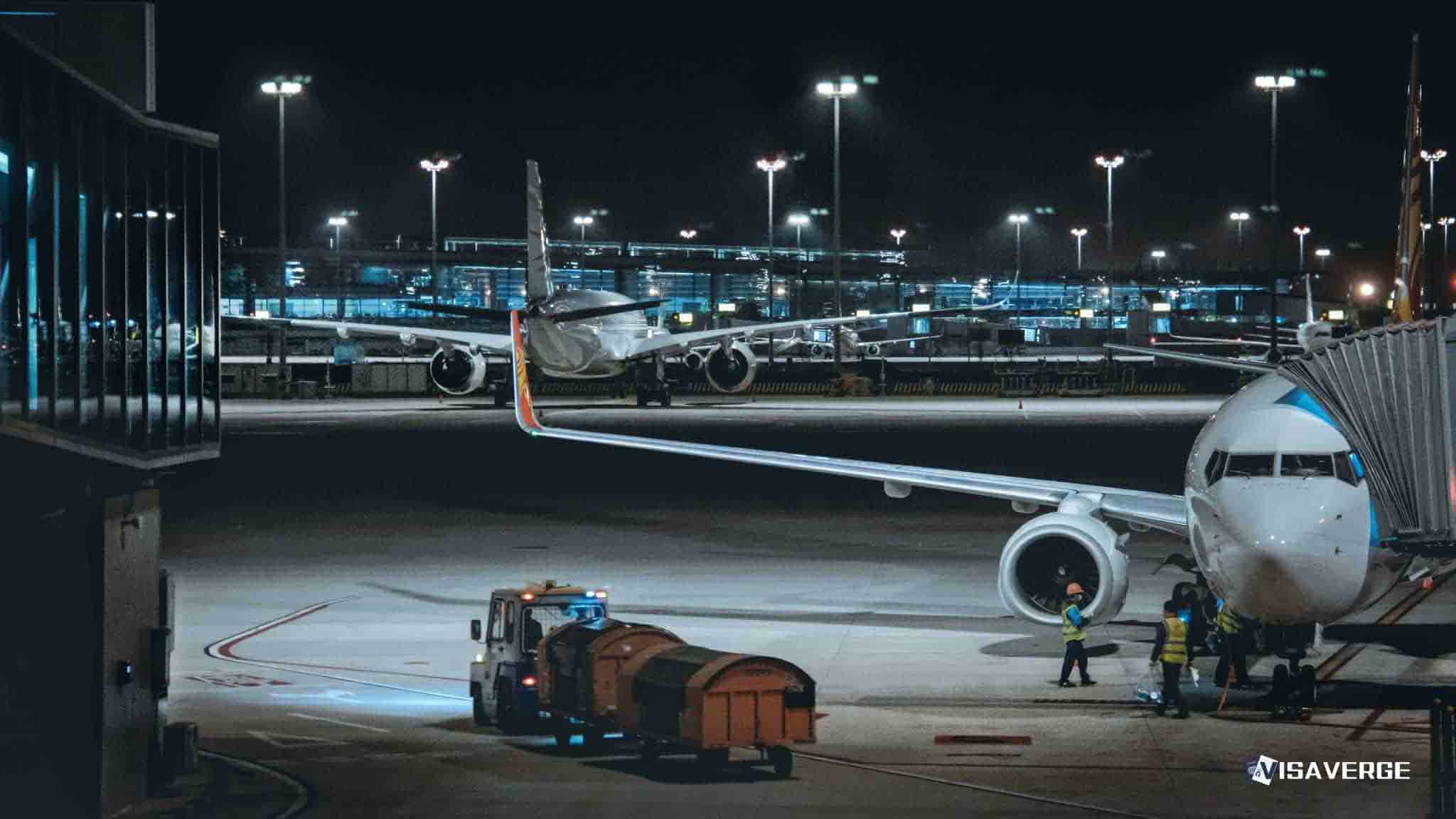First, the linkable resources in order of appearance:
1. Swedish Migration Agency
2. citizenship test (appears as “citizenship” and “civics test” — link to the first occurrence of the relevant resource: “citizenship”)
3. language skills (appears as “Swedish language skills”)
4. visa verge analysis (appears as “VisaVerge.com”)
Now the article with the allowed .gov links added (only the first mention of each resource, up to 5 links). No other changes were made.

(SWEDEN) Sweden’s government inquiry has proposed a sweeping change to migration rules that could allow the revocation of permanent residence permits for an estimated 98,000 to 180,000 people, most of them asylum refugees and their family members. The report, released in September 2025, recommends a new law under which long-term status could be withdrawn unless a person either qualifies for Swedish citizenship or meets the current requirements for a new permanent residence permit. Labor immigrants are not included in the proposal.
The inquiry proposes that the law enter into force on January 1, 2027. Until parliament debates and votes on the bill, nothing changes for current residents. But the signal is clear: the state intends to reassess large groups who received protection during earlier migration waves, with an emphasis on moving people toward citizenship where possible, or to time-limited permits if protection grounds still apply.
Minister for Migration Johan Forssell has said the “vast majority” of those covered are expected to remain in Sweden. Many already meet the conditions for citizenship or can qualify again for permanent residence under today’s rules. The inquiry’s lead investigator, Josephine Boswell, likewise stressed that the number of people who would actually be deported is likely to be far smaller than the headline figure of those who fall within the law’s scope.
Policy proposal and timeline
Under the proposal, authorities would review permanent residence status for asylum refugees and their relatives to determine whether each person should keep permanent status, transition to a temporary permit, or, in some cases, face revocation of permits. Each case would be individually assessed, with the inquiry identifying roughly 15,000 “difficult cases” where facts and records may be complex or protection grounds contested.
Key elements include:
- Scope: Applies to refugees and their family members with permanent residence; excludes labor immigrants.
- Main mechanism: Permanent status can be revoked unless the person qualifies for Swedish citizenship or meets the test for a new permanent residence permit.
- Downgrade option: If protection grounds remain, a person could move to a temporary residence permit rather than losing status entirely.
- Start date: Proposed to take effect on January 1, 2027.
- Case-by-case review: About 15,000 assessments may be especially complex, with outcomes uncertain.
The government also ties the proposal to a broader citizenship plan. Officials are encouraging eligible residents to apply for citizenship, which would shield them from revocation. At the same time, Sweden is moving to introduce stricter citizenship requirements:
- Proof of Swedish language skills
- A civics test
- Self-sufficiency through work or other legitimate income
- Evidence of leading a “decent life” (linked to law-abiding behavior and social responsibility)
According to analysis by VisaVerge.com, these steps fit a wider shift toward conditional permanence, where long-term stay depends on ongoing ties and integration rather than a one-time grant.
The inquiry recognizes that many will remain in Sweden, but emphasizes that long-term status could become conditional on citizenship or renewed compliance with residence requirements.
Impact on residents and practical implications
For families who rebuilt their lives after receiving protection, news of possible revocation raises deep worries. Parents with school-age children fear losing stability; adult children on their own worry their status might change mid-studies or early in their careers. The inquiry states that many will keep living in Sweden, yet the uncertainty during reviews can weigh heavily on daily life, housing decisions, and jobs.
What this means in practice:
- People who already qualify for citizenship should consider applying, since citizenship blocks revocation under the proposal.
- Long-term residents who do not yet qualify for citizenship may face checks to confirm whether they still meet today’s standards for permanent residence.
- If a person no longer meets permanent residence criteria but still needs protection, they could be moved to a temporary residence category.
- Individuals who have been outside Sweden for long stretches or who no longer meet underlying protection grounds may be at higher risk during review.
The inquiry does not set deportation targets, and officials expect far fewer removals than the total number under assessment.
Steps residents can take now
- Track official updates and review current guidance from the Swedish Migration Agency.
- Check eligibility for citizenship and prepare early for language and civics requirements.
- Keep documents showing employment, education, and clean criminal records, as these support both citizenship and permanent residence reviews.
- If protection grounds still apply, keep evidence up to date (for example, country conditions reports and personal documentation).
- Seek legal advice early if your case involves complex family status, interrupted work histories, or unclear records.
Important: Until parliament acts, people keep their current status. But the lead time to January 1, 2027 should not be seen as an excuse to delay preparation.
Complex cases, community and economic effects
The inquiry recognizes that roughly 15,000 cases may be hard to resolve — a reminder that life stories do not fit neatly into legal boxes. Mixed family statuses, interrupted work histories, or unclear records can complicate decisions.
Community groups, schools, and employers can help by providing:
- Reference letters
- Confirmation of study progress
- Verification of employment and income records
Businesses and local services also have a stake:
- Employers relying on staff with permanent residence — especially in care, logistics, and retail — may see some workers shift to temporary permits.
- Municipalities could face increased demand for language courses and civics preparation.
- While labor immigrants are not targeted, spillover effects are possible if families adjust housing or job plans during review periods.
Political context and debate
This proposal fits a broader effort by the government and the Sweden Democrats to reduce migration and tighten long-term status rules. Supporters argue that permanent residence should reflect ongoing ties to Sweden and continued eligibility, not a once-and-for-all grant.
Critics counter that revisiting settled status undermines trust and places undue strain on families who have lived in the country for years, paid taxes, and learned the language.
The government’s message is twofold: move toward citizenship if you can, and expect closer checks if you hold permanent residence based on protection grounds. The combination of a firm start date, case-by-case assessments, and tougher citizenship tests sets a clear path but also demands careful preparation from those affected.
Next steps in the process
- The inquiry’s recommendations now move to the government and parliament for consideration.
- Debate and possible amendments are expected before any law is passed.
- Until parliament acts, nothing changes for current residents — but preparation is advised to reduce stress and improve outcomes.
Final takeaway: early planning — language study, civics preparation, employment documentation, and legal advice where needed — can make the difference between a smooth transition to citizenship and a difficult reassessment of permanent residence in the years ahead.
This Article in a Nutshell
In September 2025 a Swedish government inquiry proposed a law that could revoke permanent residence for 98,000–180,000 people, mainly asylum refugees and their family members. The proposal, if enacted on January 1, 2027, would require individual reviews to determine whether individuals qualify for citizenship, meet criteria for a new permanent residence permit, or should be moved to temporary permits. Labor immigrants are excluded. Authorities estimate roughly 15,000 cases will be complex. Officials stress most people will remain in Sweden and urge eligible residents to apply for citizenship, while tightening language, civics, self-sufficiency, and conduct requirements. Parliament will debate the bill and may amend it before any change takes effect.







